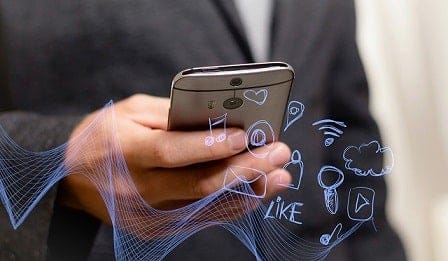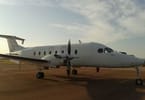The problem with that is there are risks when jumping onto public Wi-Fi in ọdụ ụgbọelu and truthfully on any public Internet connection.
Literally millions of travelers use public Wi-Fi perhaps not realizing these connections very often lack appropriate measure for security. It is at this point that iyi egwu cyber find an endless buffet of security breaches.
In research conducted by Geonode, approximately three-quarters of Wi-Fi airport networks are open to cyber attacks with 1 in 3 users opening themselves up to having their sensitive information shared on unsecured networks.
Passwords and financial data are quite often shared via unsecured Wi-Fi connections.
These airport Internet connections open users up to cyber threats that include not only data interception but man-in-the-middle attacks and malicious hotspots.
It would be wise to consider using secure browsing options such as VPNs.
Otu esi nọrọ na nchekwa
Jiri VPN (Virtual Private Network)
VPN na-ezochi data gị ma na-ebugharị ya site na nkesa echekwara, na-eme ka ọ na-esiri ndị omempụ cyber ike ịbanye ma ọ bụ nweta ozi gị.
Kwado nyocha nke ihe abụọ (2FA)
Whenever possible, enable 2FA on your accounts. This adds an extra layer of security by requiring a second form of verification, such as a text message or authentication app, in addition to your password.
Keep Software and Apps Updated
Regularly update your operating system, web browsers, and apps to ensure you have the latest security patches.
Avoid Using Public Wi-Fi for Sensitive Activities
Refrain from accessing or sharing sensitive information, such as online banking or personal identification, when connected to public Wi-Fi networks.
Use HTTPS Websites
Make sure the websites you visit use HTTPS, which indicates that the data exchanged between your device and the website is encrypted.
Turn off File Sharing and Wi-Fi When Not in Use
Disable file-sharing options on your device and turn off Wi-Fi when you’re not using it to prevent unauthorized access to your files or device.
Use Antivirus and Firewall Software
Install reliable antivirus software and enable a firewall on your device to protect against malware and other threats.
Be Cautious of Public Charging Stations
Cybercriminals can exploit public charging stations to install malware or steal data from your device. Use your own charger and plug it into a wall outlet or use a portable power bank.
Beware of Fake Wi-Fi Hotspots
Verify the legitimacy of a public Wi-Fi network before connecting to it. Cybercriminals often create fake hotspots with similar names to trick users into connecting.
Use Strong Unique Passwords
Create strong unique passwords for each of your accounts and avoid using the same password across multiple platforms.
1By following these best practices, you can significantly reduce the risk of becoming a victim of cyber-attacks while using public Wi-Fi networks.





















![Ụgbọ oloko Hyperloop nke China: Nleba anya na Ọdịnihu nke Ụgbọ njem 19 Akụkọ Njem Nlegharị anya | Ụlọ & Mba Ụgbọ oloko Hyperloop China [Foto: Teknụzụ Ụgbọ njem Hyperloop]](https://eturbonews.com/cdn-cgi/image/width=145,height=100,fit=crop,quality=80,format=auto,onerror=redirect,metadata=none/wp-content/uploads/2024/02/180720163348-hyperlooptt-china-capsule.jpg)

